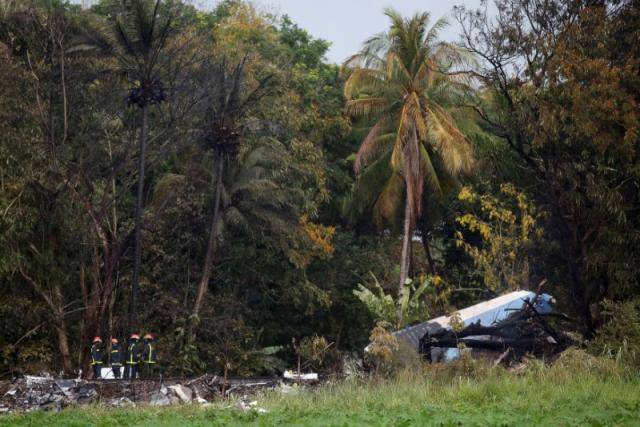Mexico’s civil aviation authority said it would not lift a suspension of Damojh’s operations that the company is fighting to have removed, and that its counterpart in Cuba, which is leading the investigation, had yet to issue any findings.
It did not address Damojh’s explanation of the crash, provided in a statement that did not make clear whether the company had itself analyzed the flight recorder data or had access to the inquiry.
The little-known company had leased the Boeing 737 to Cuba’s flagship carrier Cubana shortly before the accident, which killed 112.
Citing data extracted by Cuban, Mexican and U.S. investigators of the minutes leading up to the May 18 crash near Havana, Damojh said a flight simulation showed the crew had piloted the Boeing 737 at a “very steep angle,” leading to a lack of lift that it said made the plane plunge after take-off.
SPONSORED
The company statement did not specify exactly which crew members were being referred to.
Mexico’s pilots union, ASPA, said Damojh was “irresponsible” in releasing its statement before the investigation had been concluded, and that it did not take into account factors such as distribution of weight or possible equipment failures.
“They’re just looking to defend their interests,” ASPA’s spokesman, Mauricio Aguilera, told domestic news outlet Milenio.
Cuban, Mexican and U.S authorities have yet to release the results of their investigation into the crash, one of the Caribbean’s worst air disasters, and Reuters could not verify Damojh’s explanation.
Damojh was banned from flying in Guyana last year because of safety concerns, and Mexico’s aviation authority suspended the company in 2010 and 2013 during regulatory compliance reviews.
The U.S. Federal Aviation Administration referred Reuters to Cuba’s aviation authority for comment, while the U.S. National Transportation Safety Board did not immediately respond to a request for comment.
Boeing also did not immediately respond to a request for comment.
Cubana, which has struggled to satisfy flight demand, leased the 39-year-old plane from Damojh less than a month before the crash, Cuban Transport Minister Adel Yzquierdo said after the accident, adding that a U.S. trade embargo made it difficult for Cuba to acquire aircraft.
The carrier could not be reached for comment about Damojh’s statement.
The Boeing 737 that crashed was one of three then owned by Damojh, which leased the aircraft with crew, according to the Mexican government.
Last month, Cubana said it was suspending nearly all domestic flights due to a lack of working aircraft, plunging travel networks on the Caribbean’s largest island into chaos.
Cuban authorities, who had recovered the cockpit voice recorder and flight data recorder, could not be reached for comment. They had previously not responded to several requests for comment on the decision to contract Damojh.
More about: #Cuba-crash
















































